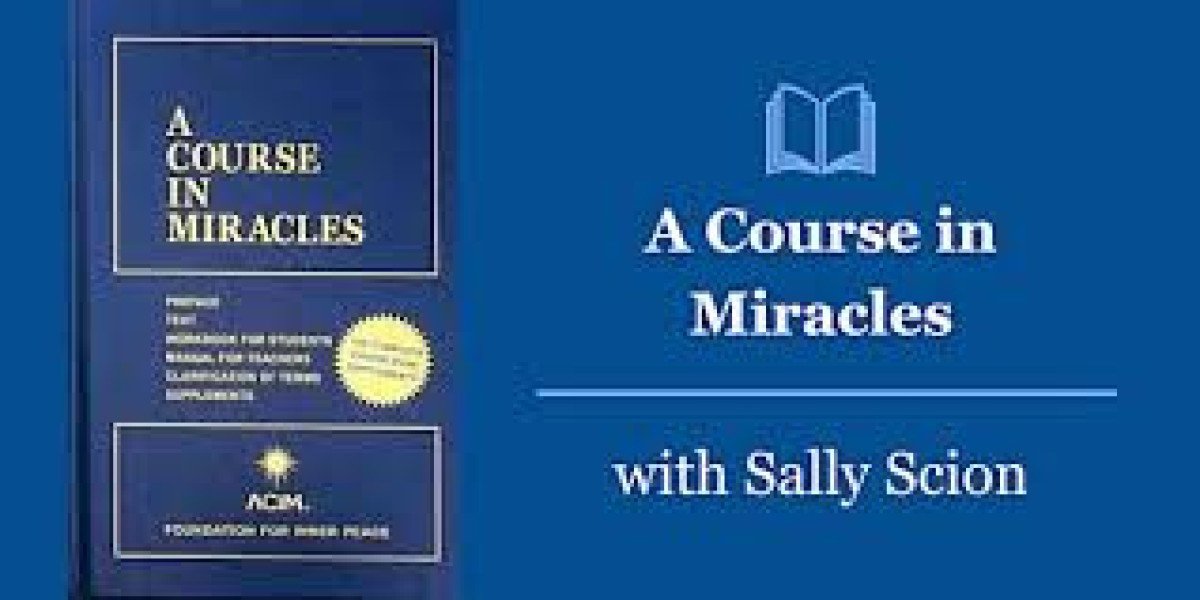Introduction:
In a world filled with chaos and uncertainty, many individuals seek a path that leads to inner peace, spiritual growth, and a profound understanding of life. One such transformative journey is paved by "A Course in Miracles," a spiritual curriculum that has captivated the hearts and minds of seekers for decades. In this article, we will delve into the profound teachings of A Course in Miracles, exploring its origins, core principles, and the impact it has had on countless lives.
The Genesis of A Course in Miracles:
A Course in Miracles, often abbreviated as ACIM, emerged in the 1970s through the collaboration of Helen Schucman and William Thetford, two psychologists at Columbia University. Schucman, a research psychologist, began receiving a series of inner dictations, which she believed were coming from Jesus Christ. Thetford, her colleague, played a crucial role in transcribing these messages. The result was a comprehensive spiritual guide that would later become A Course in Miracles.
Core Principles of A Course in Miracles:
Forgiveness as a Path to Inner Peace:
At the heart of A Course in Miracles lies the transformative power of forgiveness. Unlike conventional notions of forgiveness, ACIM emphasizes a radical form of forgiveness that goes beyond pardoning external actions. It invites practitioners to recognize the inherent innocence of others and release judgments. Through forgiveness, individuals can attain a state of inner peace and liberation from the burden of resentment.
The Illusion of Separation:
ACIM challenges the perception of separation between individuals and the world. It asserts that this sense of isolation is an illusion, and true unity can only be found in recognizing our interconnectedness. The course teaches that we are all part of a collective consciousness and that the ego, with its divisive tendencies, is the root cause of the perceived separation.
Miracles as a Shift in Perception:
Miracles, as defined by A Course in Miracles, are not supernatural events but rather shifts in perception. These shifts occur when individuals choose love over fear, forgiveness over judgment. ACIM teaches that miracles are a natural expression of love, and by cultivating a miracle-minded mindset, individuals can bring healing and transformation into their lives.
The Role of the Holy Spirit:
A Course in Miracles introduces the concept of the Holy Spirit as a guide and teacher on the spiritual journey. The Holy Spirit is seen as the bridge between the individual's ego-based thinking and the higher wisdom of love. By turning to the Holy Spirit for guidance, practitioners can navigate life's challenges with clarity and grace.
Impact on Personal Transformation:
Countless individuals around the world have attested to the transformative impact of A Course in Miracles on their lives. The course provides a framework for self-inquiry, inviting individuals to question their beliefs, judgments, and perceptions. As practitioners engage with the lessons and principles of ACIM, they often experience a profound shift in consciousness, leading to greater compassion, understanding, and inner peace.
The journey with A Course in Miracles is not without its challenges. The course requires a willingness to confront deep-seated fears, release attachments to grievances, and embrace a new way of perceiving the world. However, those who embark on this spiritual path often find that the rewards far outweigh the difficulties.
Integration into Everyday Life:
One of the strengths of A Course in Miracles is its practical application in everyday life. The course provides a set of daily exercises, meditations, and reflections that help individuals integrate its teachings into their daily routines. Whether facing personal conflicts, relationship challenges, or navigating the complexities of the modern world, ACIM offers a roadmap for responding with love and forgiveness.
The keyword, "A Course in Miracles," is not just a title but a guiding principle that can be applied in various aspects of life. By consciously practicing its teachings, individuals can cultivate a mindset that fosters harmony, understanding, and a deep sense of purpose.
Challenges and Criticisms:
While A Course in Miracles has gained a dedicated following, it has not been without its critics. Some argue that the course's language and concepts are too esoteric, making it challenging for some individuals to grasp. Others question the source of the teachings, given the unconventional circumstances of its reception by Helen Schucman.
Additionally, some traditional religious circles view ACIM with skepticism, as its teachings deviate from conventional Christian doctrines. However, proponents of the course argue that its universal spiritual principles transcend religious boundaries and resonate with the core teachings of love, forgiveness, and inner peace found in many faith traditions.
Conclusion:
A Course in Miracles stands as a beacon of light in the realm of spiritual literature, offering a transformative journey for those seeking deeper meaning and inner peace. Through its core principles of forgiveness, unity, and miracles, ACIM provides a roadmap for personal growth and a shift in consciousness.
Whether approached as a daily spiritual practice or a profound philosophical exploration, A Course in Miracles has the potential to catalyze a significant shift in one's perception of self, others, and the world. As individuals engage with its teachings and apply them in their daily lives, the promise of miracles becomes not just a concept but a tangible and lived reality. A Course in Miracles invites us to transcend the illusions of separation, embrace forgiveness, and embark on a journey toward a more loving and harmonious existence.








